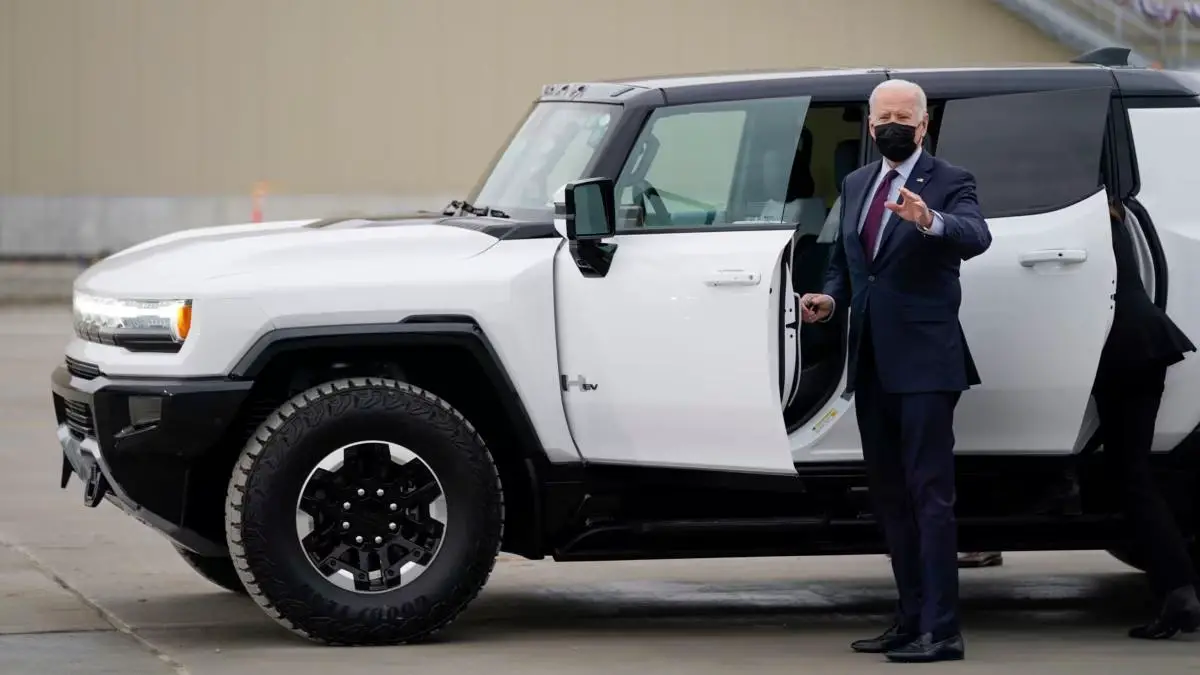There’s a famous quote from former President Ronald Reagan about the way government often attempts to “help” the private economy:
“If it moves, tax it. If it keeps moving, regulate it. And if it stops moving, subsidize it.”
In the case of electric vehicles, the Biden administration has chosen the “subsidize it” option even though consumer demand simply isn’t there to meet supply. In other words, the goal of turning America’s gas-powered automobiles into electric vehicles within a few short years is hitting some speed bumps.
The automobile industry as a whole is already highly taxed, highly regulated, and now becoming more and more highly subsidized. Rather than allow car makers and buyers to drive the market with innovation and consumer preference, the government has stepped in time and time to again tell consumers what they must buy, and tell automakers what they must create.
The result of Biden’s electric vehicle mandates has created a surplus of EVs sitting on lots for pretty much every automaker not named Tesla, as Axios reports:
The auto industry is beginning to crank out more electric vehicles (EVs) to challenge Tesla, but there’s one big problem: not enough buyers.
Why it matters: The growing mismatch between EV supply and demand is a sign that even though consumers are showing more interest in EVs, they’re still wary about purchasing one because of price or charging concerns.
- It’s a “Field of Dreams” moment for automakers making big bets on electrification — they’ve built the cars, and now they’re waiting for buyers to come, says Jonathan Gregory, senior manager of economic and industry insights at Cox Automotive.
Driving the news: Cox Automotive experts highlighted the swelling EV inventories during a recent midyear industry review for journalists and industry stakeholders.
- EV sales, which account for about 6.5% of the U.S. auto market so far this year, are expected to surpass 1 million units for the first time in 2023, Cox forecasts.
- A Cox survey found that 51% of consumers are now considering either a new or used EV, up from 38% in 2021.
- Tesla’s rapid expansion, plus new EVs from other brands, are fueling the interest — 33 new models are arriving this year, and more than 50 new or updated models are coming in 2024, Cox estimates.
Yes, but: Sales aren’t keeping up with that increased output.
Details: The nationwide supply of EVs in stock has swelled nearly 350% this year, to more than 92,000 units.
The readout on all this is quite simple: The government wants more electric vehicles on the road but consumers aren’t ready to buy in.
The reasons vary but mostly it has to do with the overall price of electric vehicles, which are often much higher than an equivalent gas-powered model, and overall concerns about a lack of charging stations. Furthermore, there’s the freedom concern that buying an EV will limit mobility since charging takes a lot of time compared to a 10-minute gas fill-up.
If you haven’t read the horror stories of driving cross-country with an electric vehicle, it’s enough to make anyone think twice or three times before taking the plunge, especially as a replacement vehicle for the primary family car.
Charging stations, which take 30 minutes to an hour or more to provide a couple of hundred miles of drive time, can be hard to come by in many parts of the country. Furthermore, the charging network in many areas isn’t maintained and is littered with low-power charging stations that might take many hours to bring a vehicle to a fifth percent charge.
Beyond that, the simple economics of it don’t make sense for most consumers yet here’s the Biden administration pushing electric vehicles with a full-throated demand to eliminate gas-powered cars in the 2030s.
As an automaker, Tesla created cars people actually want to buy. Yes, there have been government tax credits involved along the way, but the vehicles themselves have to be appealing in order to attract buyers. As other vehicle manufacturers play catchup and produce new and untested electric vehicles, consumers seem quite weary of jumping on board.
The stockpile of unsold inventory varies, but most brands outside of Tesla have plenty of EVs sitting on their lots:
- Genesis, the Korean luxury brand, sold only 18 of its nearly $82,000 Electrified G80 sedans in the 30 days leading up to June 29, and had 210 in stock nationwide — a 350-day supply, per Cox research.
- Other luxury models, like Audi’s Q4 e-tron and Q8 e-tron and the GMC Hummer EV SUV, also have bloated inventories well above 100 days. All come with hefty price tags that make them ineligible for federal tax credits.
- Imported models like the Kia EV6, Hyundai Ioniq 5 and Nissan Ariya are also stacking up — likely because they’re not eligible for tax credits either.
Despite being poked and prodded, many consumers are wide-eyed about the fact that the nation’s infrastructure is not yet capable of handling a broader push toward an all-electric vehicle market.
Furthermore, it’s downright elitist and out of touch for coastal politicians, like Biden, who is ferried in motorcades everywhere he goes, to assume Americans living in rural areas have any interest whatsoever in handing over their gas-powered vehicles for the limitations of electric.
Biden’s flailing EV push is simply another example of “Scranton Joe” being incalculably out of touch with the working class he claims to represent.
